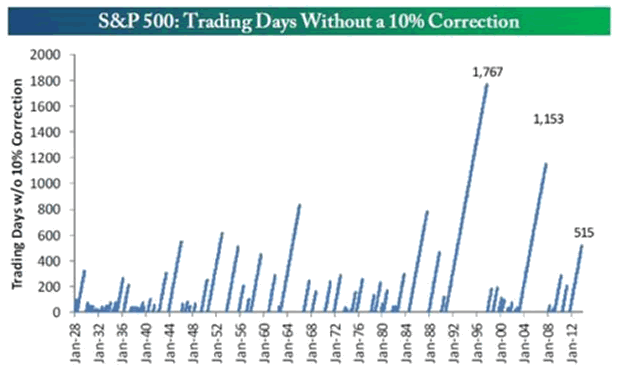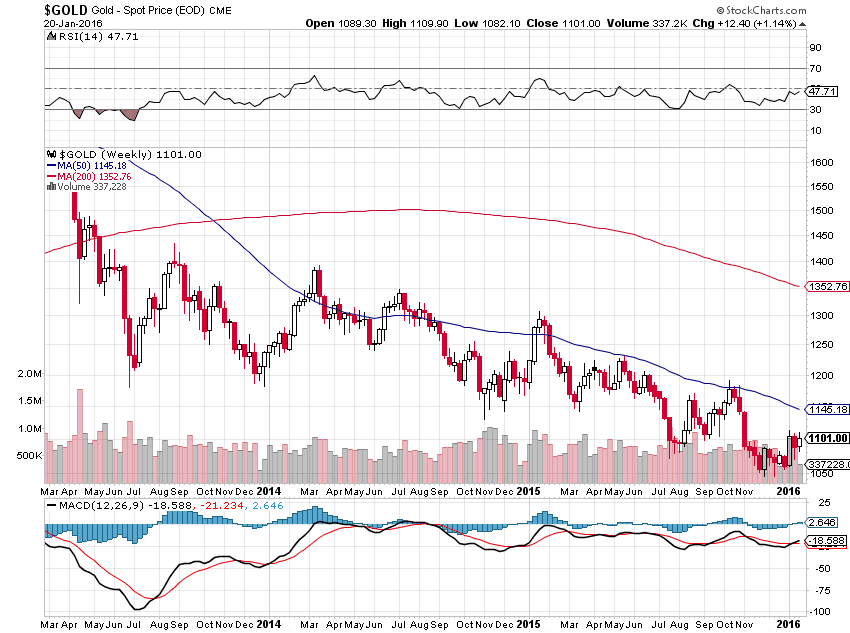Preventing stock market crash
One frequently hears a handful of statements among those who are under-invested in equities. If an event permanently and unimpeachably eradicated the future earning potential of every company in the world, this would in fact occur.
For instance, imagine that the Messiah arrived and used divine law to banish corporate profits. Or that a meteor wiped out every human on this planet save for a sole tribe of notorious tightwads.
Unlikely as such events may seem, the potential for utter catastrophe plays an important role in modern financial theory.
Academics have long puzzled over why stocks have done so well as compared to bonds. Why, they wonder, has the stock market returned some 10 percent in the average year sincewhile short-term Treasury bills have returned just 3 percent?
If humans or at least financial markets are basically rational, then who are these saps buying Treasuries? A compelling answer, as laid out by Martin Weitzman in his paper " Subjective Expectations and Asset-Return Puzzles ," is that a large part of this "equity premium" exists to compensate investors for disasters that did not occur. Just because the worst didn't happen does not mean the worst could not have possibly happened, and objectively high rates of return may simply be viewed as compensation for "bearing the extra risk of rare disasters in the left tail of the distribution that happen not to have materialized within the limited sample.
Or as Nassim Nicholas Taleb put in his first book, "Fooled by Randomness": A delightful illustration of this argument, brought up by both Weitzman and Taleb, is known as the "peso problem. So why, some wondered, were Mexican bank deposits paying a higher yield than comparable American ones?
This question was said to be only answered later, when the peg broke and the peso lost nearly half of its value — a catastrophic event for those who had been in the process of scraping yield from Mexico.
But there's a problem with the peso problem. The relevant question is: How much would it have cost to insure the value of the Mexican peso as compared to the U.
If one could do this nearly costlessly — as one would have needed to be able to in order for it to be true that investors saw almost no chance of the peso losing its value against the dollar — then adding this insurance component to the long-Mexican-notes short-U.
On the other hand, if the cost of buying such insurance was prohibitive, then we can categorically say it was false that people thought it out of the question that the peg could be broken. Zooming out a bit brings the situation into greater relief. It is a tenet of finance that risk and reward are related; without one, there can be little of the other. And why should there be? Why should others simply hand you money for free?
One cannot earn more than the risk-free rate when protecting against all risks here, overall global bond yield risk and currency risk — though we could also add sovereign credit risk, counterparty risk, et al into the equation unless the market is broken. As a corollary, one generally must try very hard to guarantee earning less than the risk-free rate.
When it comes to the peso situation, it is certainly plausible that some traders completely ignored the chance that the peso's peg could break. But these traders needn't have waited until after they lost their money to learn that this was conceivable; the market was telling them that at the time.
China rolls out emergency measures to prevent stock market crash | Reuters
If it wasn't, then others could have secured the yield differential risklessly. And like a rack of chips dropped on a busy casino floor, that free money would not 60 second binary option charts companies stayed unclaimed for long — soon being arbitraged back down to the risk-free rate.

Getting back to stocks, a recent paper by Ivo Welch entitled " The Time-Varying Importance of Disaster Risk " attempts to mathematically assess the cost of preventing oneself against a market catastrophe. Welch's work is based on a simple strategy of buying put options which give their owner the right, but not the obligation, to sell at a given price within a given time period and holding them alongside equity holdings, a strategy which would have preventing stock market crash more than 5 percent per forex arbitrage indicator. Yet not only does this appear at least as unlikely as a one-month decline of 90 percent and probably more, since as Welch points out, there's not really a place for such a situation within the mosaic of economic realityit is not what is meant by "disaster.
Further, such a put-buying strategy is 7 secrets to day trading success pursuable, meaning that it makes for a cogent retort to the accurate point that an investor could wind up losing every penny in the market: Not if you buy put options you can't.
Alright, in a true percent drop, those who have sold these options to you may not be able to make good on their promises; while one does not actually take on credit risk when buying publicly traded options since they are cleared through a reputable middleman, such a cara login ke instaforex may leave a surfeit of able payers, destroying the middleman and leaving the options buyers holding buy stocks starbucks bag.
Yet such a situation would probably also entail the bankrupting of every major financial institution and possibly the U. Interestingly, this is an even better strategy for those who believe, for whatever reason, that the stock market is in a bubble at the time they are contemplating investment.
After Dow Crash: How to Prevent Stock Market Meltdowns - TIME
To the modern mind, bubbles are characterized by hoary exuberance that culminates in a righteous crash of Biblical proportions and don't look back, lest you be turned into a pillar of salt. If you think the market is in a bubble, then you do not think the market will fall by 1 to 14 percent. You think it will either continue to soar, or plummet fantastically.
Pairing percent-below-the-money puts with your stock exposure is a great way to play such a situation. Sure, you are sure to eventually lose 15 percent, but your expected upside should be much greater. And as of October 31,preventing stock market crash doesn't cost 2 percent a year to insure against a crash; it actually costs less than 1 percent, before transaction costs. So what are the bubble-vision investors complaining about?
If the stock market is actually in a bubble, then the buy-and-protect trade is a home run. Oh, but all that's not for me, some might say.
Even knowing I could lose 14 percent would keep me up at night. That's OK, I'll just buy Treasury bonds. First of all, "it helps me sleep at night" is not a better excuse for investors than it is for alcoholics. Some things that are good for us are difficult.
More to the point, the trouble is that sticking to bonds is risky as well, just in a subtler way. Inflation has been 3.
5 steps to avoid a summer stock-market crash - MarketWatch
The decline in purchasing power is not an accident; it is explicitly baked into our monetary policy. The Federal Reserve has an inflation goal of 2 percent.
And inflation could well run above its target — as well as above short term yields. In eight of the past 13 years, 1-year bills have yielded less than the inflation rate. To put that in practical terms, if you gave your money to the government on the day before Christmas and got it back, with interest, on the day before next year's Christmas, in most of the years sinceyou would have been able to throw a more extravagant party had you just spent the money straightaway.
Here's something for the bondholders to ponder as they're hitting their pillows: What if inflation runs at Will you really feel better knowing that the amount of money you hold has remained stable, even as its value has plunged? Obviously stocks are not perfect for everyone in every situation. If you can't stand short-term volatility, say because you have a big payment to your sleep coach coming due, then you're probably better off keeping your money in something stable.
But in many cases, those who say stocks are risky for them have not considered the ways in which they could mitigate these risks, or the risks of investing in supposedly safer assets. And in particular, those who believe stocks are in a bubble appear to be leaving a great deal of money on the table. Asia Europe Stocks Commodities Currencies Bonds Funds ETFs Investing Trading Nation Trader Talk Financial Advisors Personal Finance Etf Street Portfolio Watchlist Stock Screener Fund Screener Tech Mobile Social Media Enterprise Gaming Cybersecurity Tech Guide Make It Entrepreneurs Leadership Careers Money Specials Shows Video Top Video Latest Video U.
Video Asia Video Europe Video CEO Interviews Analyst Interviews Full Episodes Shows Watch Live CNBC U. Business Day CNBC U.

Primetime CNBC Asia-Pacific CNBC Europe CNBC World Full Episodes. Log In Register Log Out News Economy Finance Health Care Real Estate Wealth Autos Consumer Earnings Energy Life Media Politics Retail Commentary Special Reports Asia Europe CFO Council. Asia Europe Stocks Commodities Currencies Bonds Funds ETFs. Make It Entrepreneurs Leadership Careers Money Specials Shows Investing Trading Nation Trader Talk Financial Advisors Personal Finance Etf Street Portfolio Watchlist Stock Screener Fund Screener.
Tech Mobile Social Media Enterprise Gaming Cybersecurity Tech Guide Video Top Video Latest Video U. Video Asia Video Europe Video CEO Interviews Analyst Interviews Full Episodes.
Primetime CNBC Asia-Pacific CNBC Europe CNBC World Special Reports Top States Paris Airshow Trailblazers Trading the World CNBC Disruptor 50 Lasting Legacy Modern Medicine College Game Plan Investing in: Israel Tech Drivers The Brave Ones Trading Nation Shaping the future Future Opportunities.
Register Log In Profile Email Preferences PRO Sign Out. Siegfried Layda Getty Images. Then do something about it.